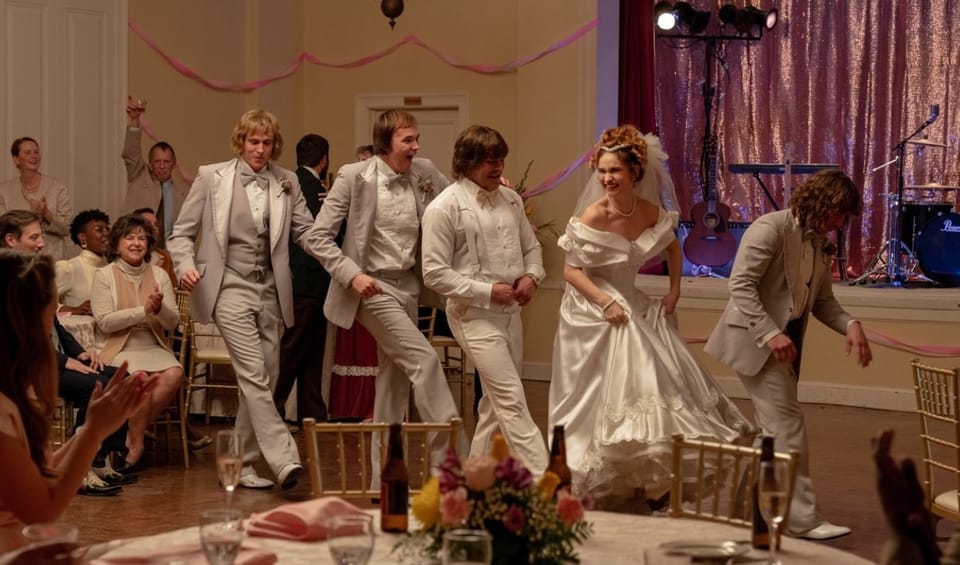How To Make Characters Distinguish Themselves
You've heard the note before, "All the characters sound the same!" The idea here is that each character should have a different sound to their speech. I think it's an easy note to make.

The Story and Plot Weekly Email is published every Tuesday morning. Don't miss another one.
You've heard the note before, "All the characters sound the same!"
The idea here is that each character should have a different sound to their speech.
I think it's an easy note to make. After all, they've heard someone else get the note before, and it sounds like a real note, right?
And the reader should be able to discern the difference between each character. We should know who's speaking even without seeing the character's name.
So this note sends many early writers into a tizzy trying to make characters "speak differently."
They will go after patterns in the speech, play with the vocabulary, even try to insert dialect into the dialogue (Yikes!)
I know this because I tried it all. And it didn't work. Because it's trying to fix the wrong thing.
Are characters "sounding" the same really the problem?
If so, how does Aaron Sorkin get away with it? He has multiple scenes with completely different characters, each with the same rhythm. Lucille Ball would fit right in at the White House. You could say the same about David Mamet, and Tarantino as well.
The more unique a writer's voice, the more obvious it is that characters have similar speech patterns.
Yet none of these brilliant writers' characters sound the same, and it's not just the actors that make this true.
Don't worry about what they say. Worry about who they are.
Because it's not really the similar vocal patterns we're detecting. In fact, beautiful rhythmic dialogue is pleasing to the ear.
My first writing teacher Edward Albee focused heavily on the "music" of dialogue.
When characters combine to give it to us, we like it.
What the note is detecting is not the language, but that the characters themselves are not distinguishable enough.
But why not?
Remember how we defined character last week:
A character is:
1) What they want, and
2) What they're willing to do to get it.
Everything else is fundamentally decoration.
Fun decoration. Important decoration. Decoration that informs and elevates, but decoration nonetheless.
So, by all means, have fun with that stuff, but remember, it's not ultimately what's important.
And like the preoccupation with subtext, if we focus on what isimportant, the note that we're so worried about seems to take care of itself.
So along with defining what a character wants and what they're willing to do to get it (which you should be doing already,) make the following two choices as well:
Give the character a type
A well-known way into any character is simply choosing a type. This is especially true (and frankly, easier) in comedy. Make the choice upfront. The dumb one, the smart one, the overly sexualized one, the psychotic one, etc...
The gift here is that you're not just giving the audience a hook to latch on to...
You're giving yourself a hook to latch on, too.
Quickly identify who this person is. A big, bold "type." In improv parlance, this is often called their "game."
And then add layers to it later as the story unfolds.
I actually tweeted about this strategy a week ago.
A student in the Story and Plot Pro live sessions mentioned The Eight Characters of Comedy (Thank you, Jade!) and I felt silly I had forgotten about this wonderful book. It's written primarily for television actors, but is just as good for comedy writers.
Of course, the fun is how you interpret that first superficial layer. Zach Galifianakis in THE HANGOVER and Lisa Kudrow in FRIENDS are essentially the same "type," but completely different in the details.
And while it's easier to see it in comedy, these broad strokes are present in drama, too. But we call them archetypes to sound more respectable because serious drama is very, very sophisticated.
Look at THE GODFATHER. Sonny is the hot-headed one, Tom is the smart one, Fredo is the weak one, and Michael is the decent one who becomes the Machiavellian one.
Each character has that first-level TYPE with additional layers underneath.
Give The Character A Point-of-View.
This is crucial. The character must have a point of view. And while their philosophy about the world can help and inform, you will get the most mileage from giving the character a specific point of view about the protagonist.
Remember last week's email about their relationship and influence on the protagonist? This a variation of that.
Do they believe in them?
Do they doubt them?
Do they think they should be the protagonist instead?
Do they worry about them?
Do they want to protect them? Destroy them?
And just like choosing a type, choosing the character's point of view tells you how this character will react ahead of time.
This decision will tell you how to write it.
This consistent through line creates an expectation, and that expectation is what allows the reader to know exactly who is speaking without even looking.
The trick, of course, is to fulfill that expectation in fun and surprising ways.
And the stronger the expectation, the more powerful it is when and if they break it.
Make Specific Choices
The more specific you are, the better. Generic choices do not help you. A little bit of this and a little bit of that is neither. It's a non-choice.
There is an expression in football that if you have two starting quarterbacks, you actually have none. What it means is that neither QB has distinguished themself enough to be the starter.
So a character without a want, without a type, and without a point of view sounds like... any other character that lacks the same things.
They will all sound the same.
So you make these three choices.
- Character.
- Type.
- Point of view.
If you focus on these three things to dictate what a character does and says, and remain emotionally truthful to those choices...
That character will distinguish themselves from all the other characters in the story.
And it will happen naturally.
So congrats! One less thing to worry about.
ONE LAST THING
Consider Forwarding This Email
If you've enjoyed this weekly email, please consider forwarding to someone you think will enjoy, too.
They can subscribe to the email here.
Expanding the readership is a goal of mine and I sure would appreciate any help with it.
Needless to say, sharing on social media with an endorsement is wonderful.
Hope to have some updates on the projects next Tuesday as well as more news on the strike.
If there's a screenwriting topic you would like covered, please reach out and let me know.
I hope so much you get to do shit you love.
In solidarity,
Tom Vaughan
The Story and Plot Weekly Email is published every Tuesday morning. Don't miss another one.
When you're ready, these are ways I can help you:
WORK WITH ME 1:1
1-on-1 Coaching | Screenplay Consultation
TAKE A COURSE
Mastering Structure | Idea To Outline




